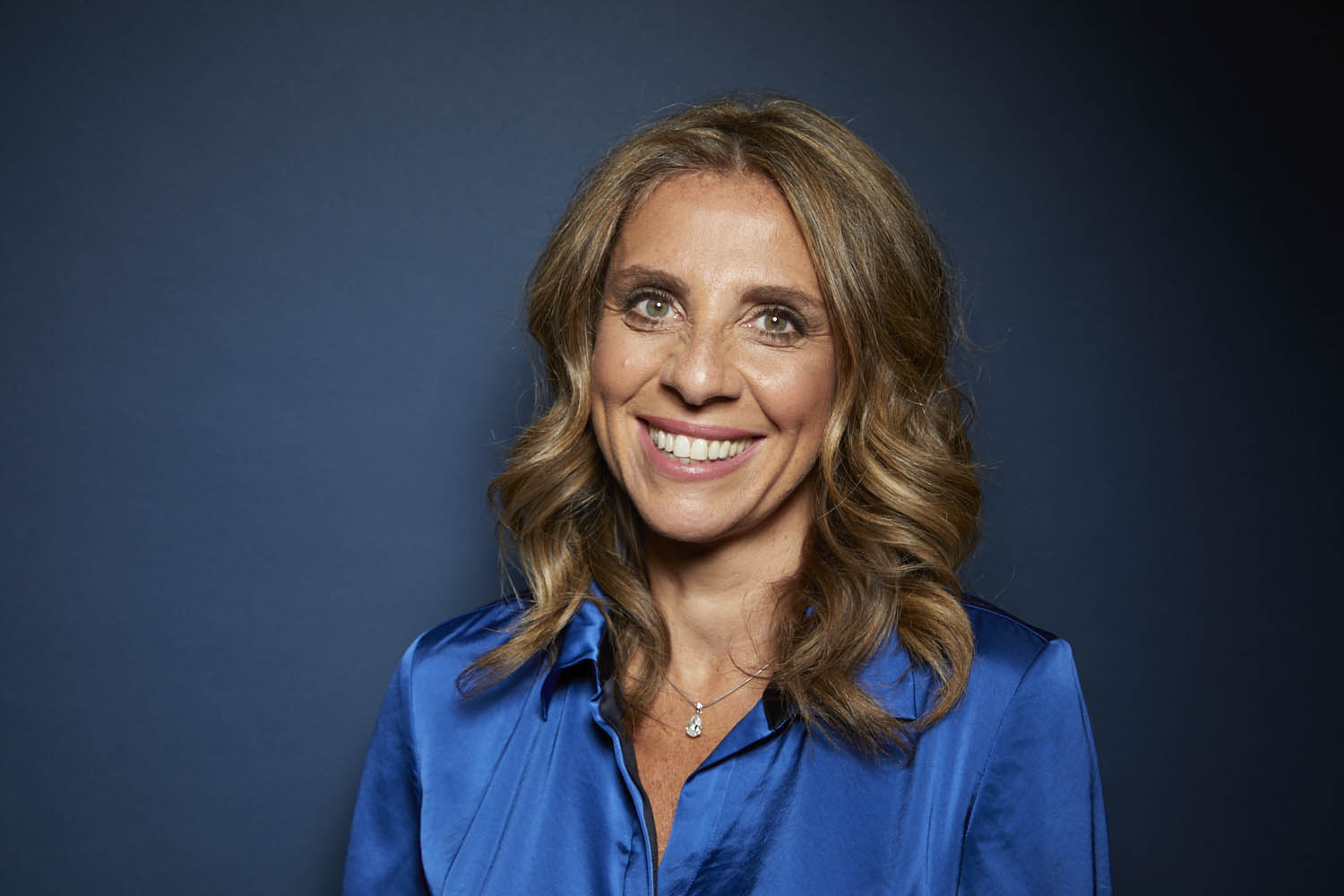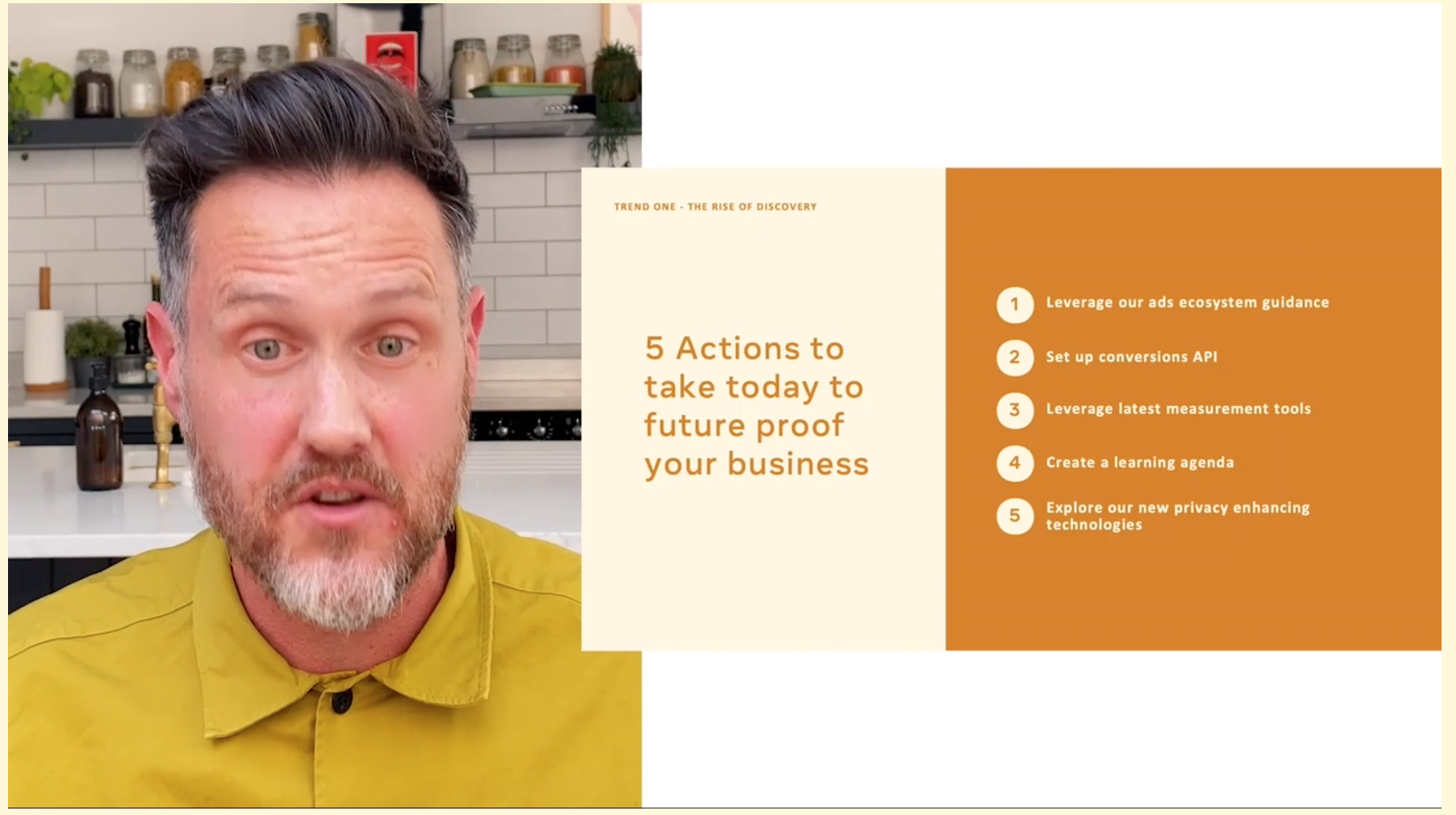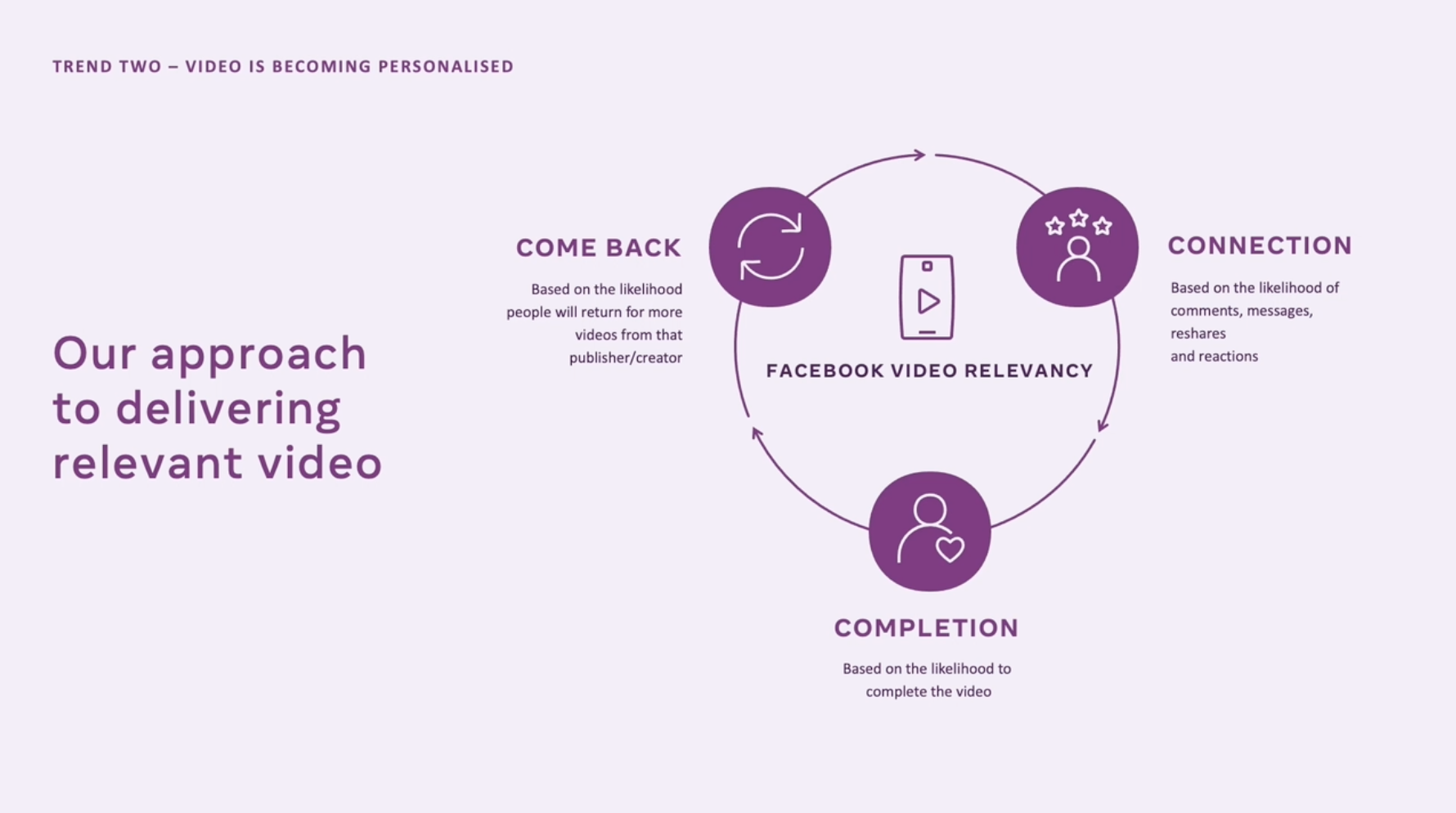Facebook ad chief Mendelsohn teases 5-year metaverse plan

Facebook is working towards building “a successor to mobile internet”, the metaverse, in the next five years.
IAB UK launched Facebook’s upfront this morning with updates about creator content commerce and the so-called metaverse, a virtual space where online games, social media, and virtual reality will exist as part of a connected system.
Ian Edwards, global connection planning director at Facebook hosted proceedings and highlighted the scale of Facebook for marketers as, he claimed, more than 3 billion people intersect with businesses and 10 million advertisers on its network.
Facebook wants to be ‘a metaverse company’ in five years

Nicola Mendelsohn, making her first public appearance as VP of Global Business Group, leading global ad sales for Facebook said: “We want to move from being a social media company to a metaverse company in the next five years.”
She said Facebook wants to help build the metaverse, which they believe will be “the successor to mobile internet”.
This was billed as “the next computing platform”, which normally happens every 15 years, which will be more immersive with augmented reality offering “nearly endless opportunities” for brands, advertisers and consumers.
Mendelsohn spotlighted brands like Made.com and Ray-Ban which are already using virtual reality to market their products so people can try out furniture in their homes and try on sunglasses before buying.
Facebook currently is developing hardware like Oculus Glasses for users to experience augmented reality and has 10,000 people working on virtual reality to make the metaverse a reality.
A ‘booming’ influencer industry
Across the upfronts, the growing importance of creator or influencer content for consumers and marketers was made clear.
According to Mendelsohn the creator economy is “booming, and it is only going to get bigger”.
She highlighted that 50 million people worldwide consider themselves creators with 63% of 18–34-year-olds trusting what an influencer says about the brand more than what the brand says about itself.
As a result she clarified that Facebook is going to keep their creator tools free to use for the next year.
In a separate session, James Bennett (pictured below), head of business product marketing for northern Europe mentioned influencer-branded content is on track to hit $15 billion by 2022 and claimed Cristiano Ronaldo earns more from his social media videos than he does from playing football even though he is one of the highest-paid players in the world.

Bennett also spoke about Facebook investing in “a portfolio of creator monetisation products across four themes”.
This ranged from new ways for creators’ audiences to support them through fan subscriptions for example, to different earnings for advertisers, bonusses for creators from Facebook Inc. and more opportunities for creators to partner with brands.
Video, Reel and Watch content
Mendelsohn emphasised that video content now accounts for half of Facebook’s content so they are “making it easier to make and share video across our services”.
A proportion of this video content is in the form of Reels, first launched on Instagram to enable creators to share short-form video content to their followers, which was carried over to Facebook’s platform this year.
Bennett said Reels are now the “largest contributor to engagement growth on Facebook in-stream”, which allows advertisers to place five second to ten minute ads in video content.
He added that Facebook in-stream helps drive longer viewing of ads with 74% in-stream non-skippable ads fully completed.

Bennett also mentioned Facebook Video Relevancy (pictured above) and Facebook Watch, its video-on-demand service as an advertising opportunity: “Personalised video has overtaken programme video in the last few years. 22 million people are on Facebook Watch every month in the UK.”
Personalised shopping and native commerce
Facebook’s Discovery Commerce was mentioned in many of the sessions as something for marketers and consumers to focus on.
Discovery Commerce is defined on its website as “a system of Facebook tools that anticipates customer needs and matches products with the people most likely to love them”.
It is enabled by data and machine learning, and allows “frictionless shopping with fewer taps” by engineering tailored suggestions that turns “discovery into demand and growing business” for advertisers.
Aside from personalisation, other tools linked to learning, optimization, effectiveness, measurement, creative, conversion and retention form part of the Discovery platform.
However, this personalisation inevitably raises the question of privacy, to which Bennett said: “There is an active debate in society right now. Some say that privacy and personalisation are at odds. We disagree that these are incompatible. Privacy expectations have changed over time. We need to focus on this issue as data-driven marketing is going through changes from IOS to changes to cookies and browsers.”
Bennett commented: “Discovery has a global potential reach to 3 billion people. But you have to stand out and grab their attention. You have to understand the process of Discovery. It is push not pull. It is for demand creation not fulfilment. It is about personalised production. It is about what people will find most entertaining and useful.”
Mendelsohn described Discovery as “the first in a step for personalised shopping” and Facebook is “looking at creating more native commerce experiences on our apps so you can do more shopping in one place “.
This could become an even more significant revenue stream for advertisers as she emphasised the potential to capitalise on spontaneous, continuous and partial shopping habits online which had grown over the pandemic.
Mendelsohn said one in five people use social media as a source of shopping inspiration, and outside of Europe this is closer to two in five.
Another trend she mentioned was one in three people in China have now used live shopping, the equivalent of the populations of Germany, France and the UK, when this combined product of streaming and shopping did not exist five years ago.
Other commerce announcements included virtual storefronts, developments to Facebook Marketplace and business messaging capabilities using Whatsapp.




